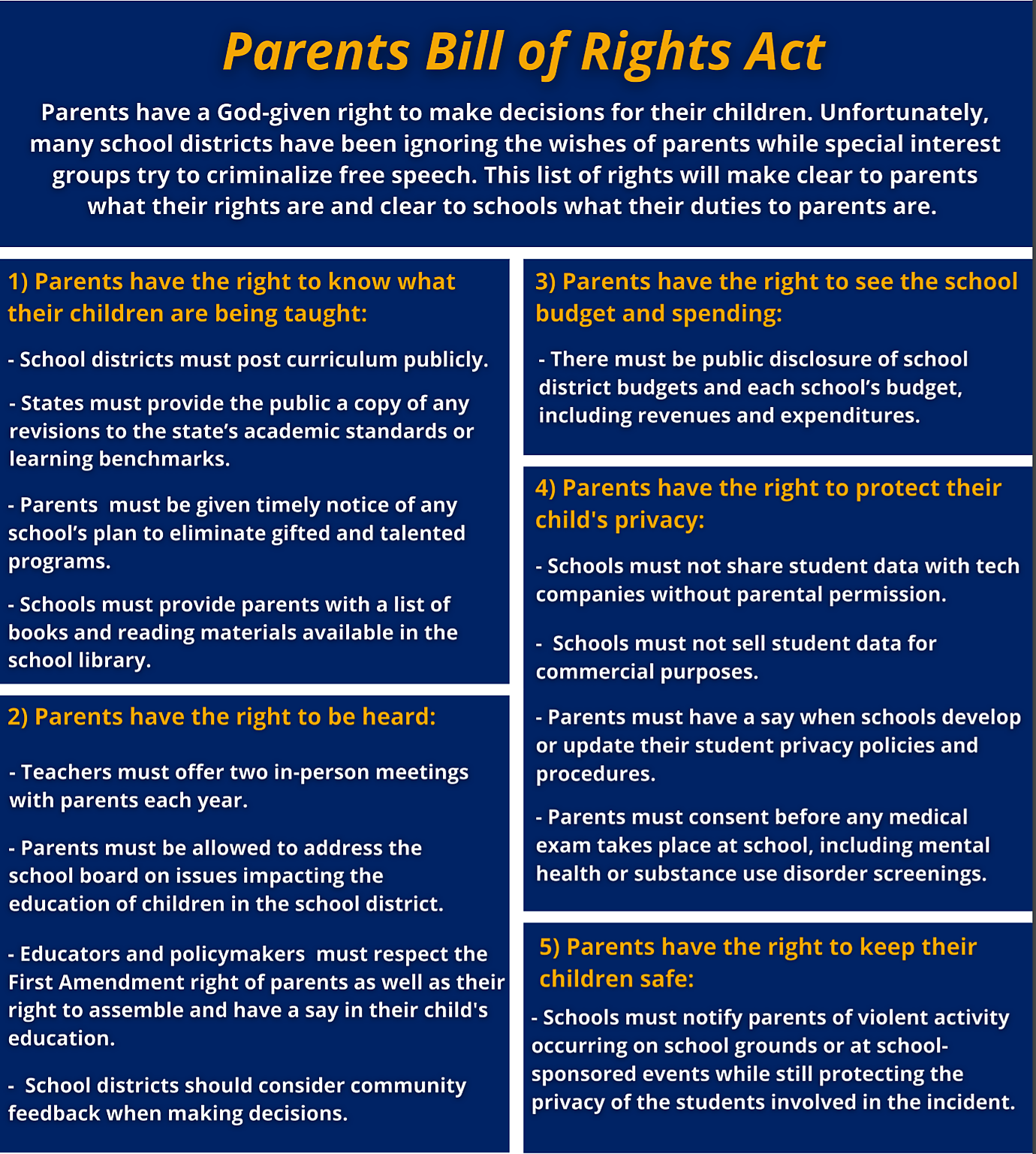Parents are having a moment. With the Virginia gubernatorial race seen as having turned on Democratic candidate Terry McAuliffe pronouncing, “I don’t think parents should be telling schools what they should teach,” and parent indignation-filled school board meetings making headlines nationwide, it feels like parents are mad as hell and not going to take it anymore. Enter the congressional GOP’s Parents Bill of Rights Act (PBORA).
A press release introducing the House PBORA – a Senate version is imminent – began:
Over the past nearly two years, we have seen a troubling trend take root in the Democrat Party. Their elected officials want to take power away from parents and hand over more control to politicians and teachers unions to dictate what our children should be taught in classrooms.
We saw it when school districts, especially those in blue areas of the country, worked to keep our schools closed for months on end despite the evidence showing they could open safely. We saw it when President Biden’s Department of Justice targeted parents at school board meetings at the behest of an interest group that labeled concerned parents as “domestic terrorists.” And we saw it when a prominent official in the Democrat Party suggested that parents shouldn’t have a say in their kids’ education.
Republicans are correct to highlight how powerless parents are in public schooling. Unfortunately, the press release suggests that their main goal is to hang parental frustration on the opposition party. That probably should not be the centerpiece of legislation that is supposed be focused on parent power. But let’s get to PBORA’s substance.
Below is a graphic provided by House Republicans summarizing the Act, and many of the proposals make good sense.
Informing parents and the public about curricula, library books, and budget information? Yes, please! Respecting First Amendment rights? They’d better. Protect child privacy? Sounds good.
Overall, the PBORA has some nice ideas, some fluff, and some stuff that seems awfully specific. (Two mandated parent-teacher meetings each year?) But before considering any of that, it suffers from a fundamental flaw: It is not constitutional. Look at the specific, enumerated powers given to the feds, and you won’t see anything about education, much less authorizing library transparency and parent-teacher conference mandates.
The other major problem with PBORA is even if constitutional, it would not give parents real power. More information is fine, but districts have been publishing such things as budget data for decades. Good luck getting most people to wade through those financial mazes, or telling from them how efficiently and effectively money is being spent. And being allowed to speak is a basic right, but getting to speak your mind before you are trampled doesn’t make the trampling feel much better.
What parents most need is not more information or paper rights, but power. And power comes from controlling funding: school choice.
Of course, the feds have no constitutional authority to push school choice nationwide. But there are a few places they can act.
First, the Constitution gives the feds exclusive jurisdiction over the District of Columbia. Indeed, there is a tiny private school choice program already there, but its funding is under constant political threat and, at just $20 million, is too small to reach more than a relative handful of families. Congress could increase the funding and make the program formula funded instead of subject to unreliable annual appropriations.
Washington also has jurisdiction over national defense, and could give military families funding to choose schools. Given its treaty power, it could also provide choice for families on Indian reservations.
Finally, parents have a bit more sway over public schools when states and districts can’t say “the federal government made us do it.” But right now, the feds dictate that states have uniform standards and aligned tests. Such top-down dictates could be relaxed or eliminated.
There is no question that parents – who both know best and most directly advocate for their children – need more power. Congressional Republicans are right to point that out. But this largely hollow and unconstitutional “rights” bill will not get the job done. That requires money following children to educational arrangements that families choose.
Congressional Republicans should focus on doing that where they constitutionally can, and otherwise on getting Washington out of the way.

